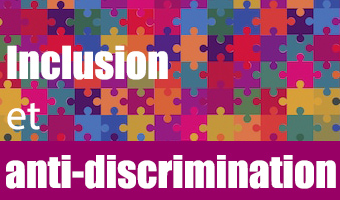The Council of Europe is currently implementing a Project on “Strengthening access to justice through non-judicial redress for victims of discrimination, hate crime and hate speech in the Eastern partnership countries”, financed by the European Union and the Council of Europe in the framework of their Partnership for Good Governance phase II.
The project has the following objectives:
- Support the development of legislation on antidiscrimination, hate crime and hate speech and its implementation in line with European human rights standards
- Assist the country stakeholders in the improvement of their procedures and tools for disaggregated data gathering on discrimination, hate crime and hate speech
- Develop the capacity of Equality bodies/ Ombudsoffices and NGOs to assist men and women from vulnerable groups in pursuing discrimination complaints through relevant nonjudicial redress mechanisms
- Raise awareness of the work of ‘equality bodies’ / Ombudsoffice and related nonjudicial redress mechanisms is increased among women and men from vulnerable communities, general public, and NGOs.
The project implementation phase started in May 2019 and continues until 31 December 2021.
The project foresees specific national level activities in the following countries: Armenia, Azerbaijan, Belarus, Georgia, Republic of Moldova and Ukraine. Furthermore, the project foresees regional activities involving entities from the 6 project countries as well. At the moment, the project foresees for autumn 2020 and 2021 a number of online/ in person meetings, such as conferences, seminars, training courses, webinars.
The Council of Europe is looking for providers in order to support the implementation of the project with a particular expertise on:
- Lot 1: moderation of online/in person meetings
- Lot 2: training in the field of anti-discrimination
Lot 1 concerns moderation for project activities (online and in person seminars, conferences, etc.), including the drafting of the agenda of the meeting, the facilitation of different agenda items, using interactive techniques to elicit participant engagement, evaluation of meeting results, using the appropriate online tools for moderation, etc.
Lot 2 concerns training provision on topics related to discrimination for target groups such as staff of equality bodies/Ombudsoffices, civil servants, NGO representatives, etc in online and in person environments. The provider is expected to have specific knowledge in the field of discrimination, including European standards, legislative provisions on the topic, responses to discrimination, combating hate speech and hate crime etc. The provider is also expected to have specific expertise in conducting training online and in person, using appropriate interactive methodologies for developing participants skills, knowledge and understanding of discrimination topics.
The deadline for the submission of tenders/offers is set for 4 September 2020, midnight CET.
More information can be found in the:
Questions and answers related to the call for online/in-person moderation and training services on anti-discrimination
Q. Do tenderers need to have anti-discrimination specialization?
A. The tender file, page 5, indicates under eligibility criteria:
- A higher education degree
- At least 5 years of experience in the field of anti-discrimination, combating hate speech or hate crime
- At least 5 years of experience with moderation (for Lot 1) or training (for Lot 2)
- Evidence of past experiences of using online tools for training and meeting organisation purposes.
Hence, we expect at least 5 years of experience in the specific field. This applies for both Lots.
Q. How to calculate the quote/ table of fees? How long and complicated the meetings would be, how many people need to be involved, how they would be informed and included upfront, number of participants etc. since this reflects the work put into the meeting agenda. Could you please give me a little more information on how you want this?
A. I quote the act of engagement, page 3, where we already offer the template to indicate a daily moderation fee. The tenderer needs to add the daily fee under the unit fee cell.
There is an exclusion level for the daily fee of 200 euro, that means, and I quote again page 3 of the act of engagement “Tenders proposing a fee above the exclusion level will be entirely and automatically excluded from the tender procedure.”
|
LOT 1 – Type of Units ▼ |
Unit fee ▼ |
Exclusion level ▼ |
|
Daily fee for moderation of project activities, such as meetings, conferences, seminar, short discussion sessions, webinars etc. |
|
200 |
We consider that moderation work does not depend on whether you moderate a meeting with 10 or 50 people. This is why the fee is based on a daily calculation and not on the number of participants.
The level of complexity of meeting is not an objective measuring indicator for our call. The objective measure of the meeting, which is the one that also sets the fee, is considered to be time, this is why we calculate daily rates.
Q. My company is subject to VAT, however, the application depends on specific factors, e.g. where the service is performed, if it is done online/offline and who is charged exactly (CoE seat in France or some other entity?)
A. Pages 3 and to section 4.2 on page 9 of the Act of Engagement clarify the VAT related set up for this call for tender. The contracting entity is the Council of Europe in Strasbourg.
Q. Could you please tell me in what language the moderation of events is supposed? Do you expect Russian-speaking lecturers to interact with people? Or are you planning to involve translators? This is important because most of the audience in my country does not speak English.
A. The activities may be of a national type or regional type. In general, national activities are in the national language or with interpretation and regional activities usually in English and Russian.
Q. I do not have an official verified 5 year experience in moderation. But I have been working as a host of human rights events for over 5 years, it is just that it has not been recorded anywhere as a special working position. Tell me, what can be such a confirmation for you?
A. Your CV and short explanation for previous experiences and your motivation letter are the places where we check the experience related to moderation and / or training.




